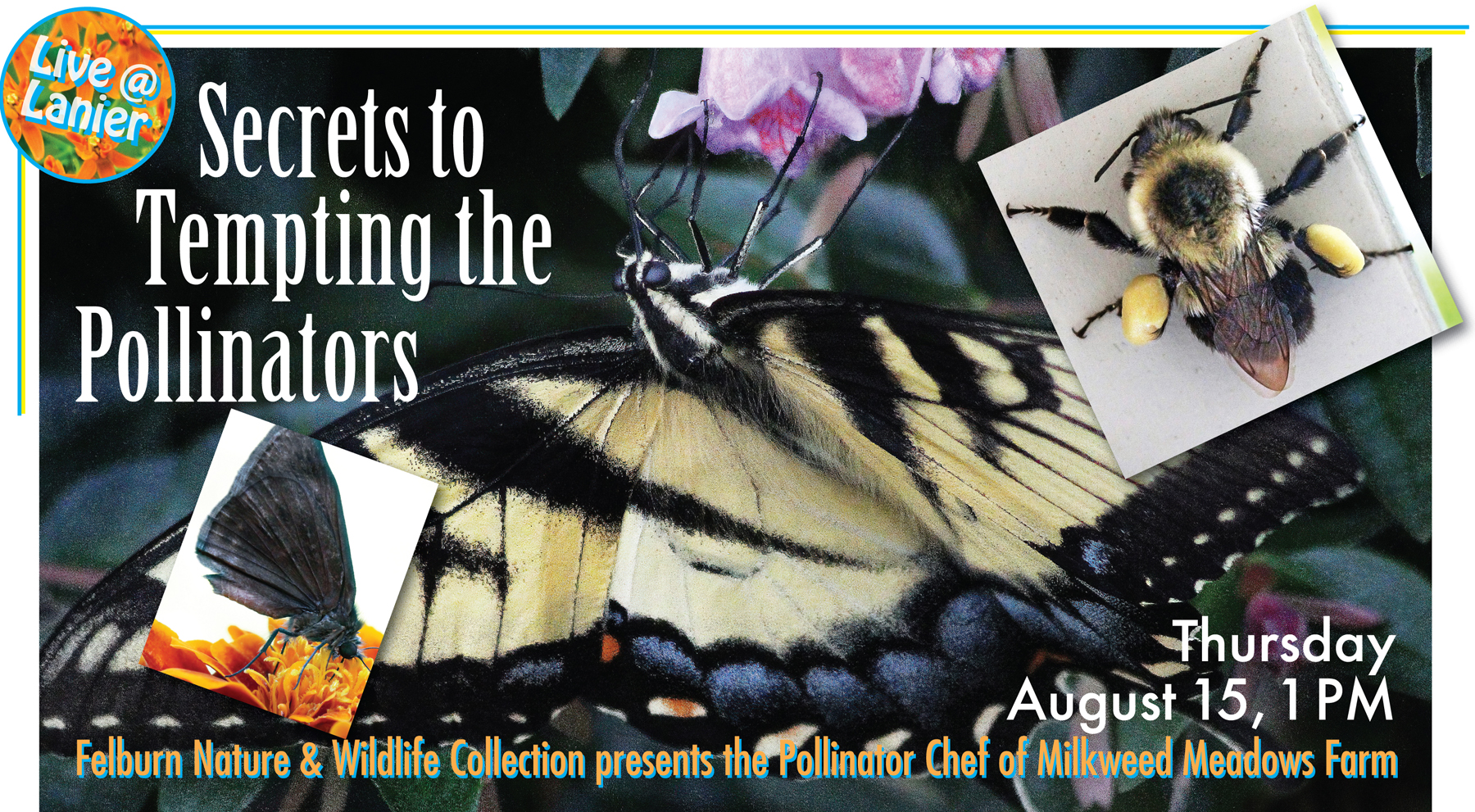Programs at Lanier Library are a tradition that started in 1890 when Mrs. Knott shared her opinions about annexing Canada. The tradition continues with speakers and topics ranging from authors to poets, historians to sculptors, crafts workshops to
wine tasting, butterflies to elephants in the Felburn Nature and Wildlife Series, and more. Most are free to the public and some are possible thanks to support from the Kirby Endowment Fund at the Polk County Community Foundation.
Upcoming programs


For the August Live@Lanier, Kim Bailey, aka The Pollinator Chef of Milkweed Meadows Farm, will share secret recipes and ingredients for creating a buffet of nectar-producing plants that tempt bees, butterflies and other pollinators from spring through fall. This is a menu to attract pollinators who fly by for a sip of nectar as well as those who linger or even make your garden their home.
An avid wildlife habitat gardener for over 25 years, Kim says, “This means growing milkweed and flowers with carry-out pollen to entice picky eaters.” Her farm’s expanding natural habitat, near Hendersonville, includes tunnels of passionvines, pipevines, hops vines, climbing milkweed, and an orchard of over 100 pawpaw trees to nurture zebra swallowtail larvae.
Her program, “Making Your Garden a True Home for Pollinators,” is the latest in Lanier’s Felburn Nature and Wildlife Collection series. Educational materials will be in the Lanier Library display case throughout August.
For details about Kim’s farm: www.milkweedmeadows.com,
